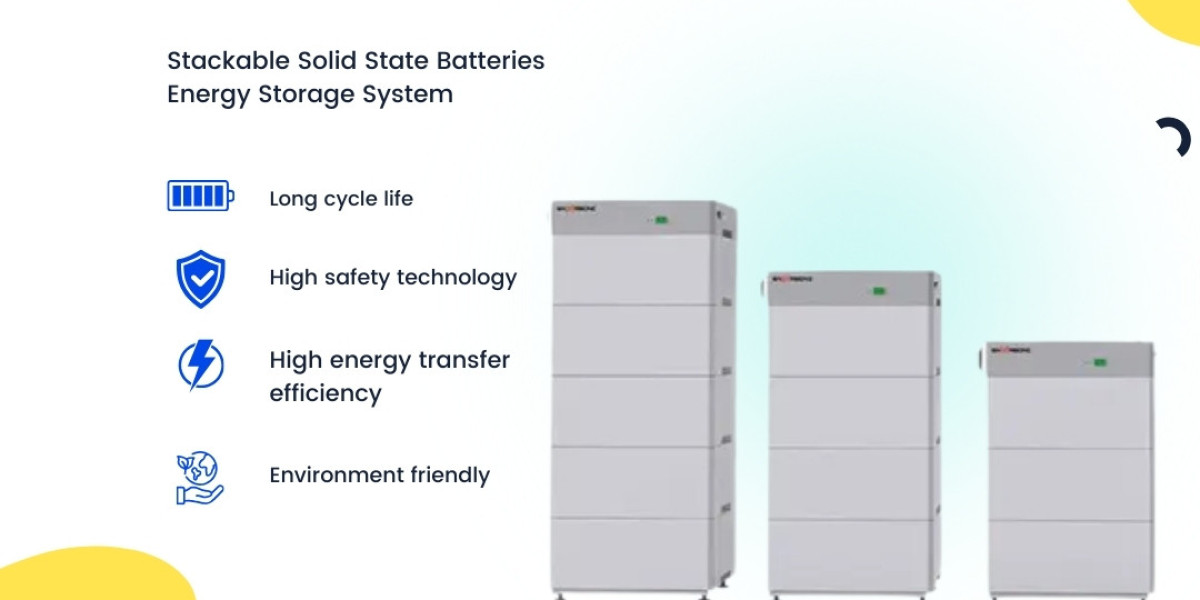Middle East Energy Storage Market Outlook: The Role of Solid-State Batteries
The Middle East, traditionally associated with vast oil reserves and a robust fossil fuel industry, is rapidly evolving in terms of energy diversification. Countries in the region are increasingly adopting renewable energy sources, such as solar and wind, driven by sustainability goals, economic diversification strategies, and the need to reduce dependency on oil revenues. This transition towards renewables has given rise to an urgent need for reliable and efficient energy storage solutions, with solid-state batteries emerging as a promising technology in this context. This article delves into the outlook for energy storage in the Middle East, emphasizing the potential of solid-state batteries to support the region’s energy transformation.
Overview of the Middle East Energy Storage Market
The Middle East is experiencing significant growth in renewable energy projects, with major investments being made in solar power due to the region’s abundant sunshine. Countries like the United Arab Emirates (UAE), Saudi Arabia, and Qatar are at the forefront of these developments, aiming to establish themselves as leaders in clean energy. According to the International Renewable Energy Agency (IRENA), renewable energy capacity in the Middle East is expected to increase substantially in the coming years, with ambitious targets set by various governments to reach up to 50% renewable energy in their power mix by 2030.
As renewable energy sources are inherently intermittent, the expansion of renewables necessitates the deployment of efficient energy storage system. Energy storage not only helps in stabilizing the grid but also ensures a consistent power supply, particularly during peak demand periods. Solid-state batteries, with their enhanced safety, energy density, and longevity, are increasingly being considered as an ideal solution for the Middle East’s energy storage needs.
What Are Solid-State Batteries?
Solid-state batteries are a type of energy storage technology that uses a solid electrolyte instead of the liquid or gel electrolyte found in conventional batteries. This difference in structure provides several advantages, making solid-state batteries safer and more reliable. Key benefits include:
– **Increased Safety**: Solid-state batteries are less prone to overheating and combustion because they do not contain flammable liquid electrolytes. This makes them an ideal choice for energy storage in harsh environments like the Middle East, where high temperatures are common.
– **Higher Energy Density**: Solid-state batteries can store more energy in a smaller space, which is beneficial for large-scale energy storage projects that require compact solutions.
– **Extended Lifespan**: These batteries tend to have a longer lifecycle compared to traditional batteries, as they suffer less from degradation over time. This durability makes them suitable for long-term energy storage projects.
– **Rapid Charging and Discharging**: Solid-state batteries can charge and discharge at faster rates, which is essential for applications requiring quick response times, such as grid balancing and peak shaving.
The Role of Solid-State Batteries in the Middle East
1. **Supporting Renewable Energy Integration**
One of the biggest challenges in renewable energy is its variability. Solar and wind energy generation fluctuate based on weather conditions and time of day, which can create instability in the grid. Solid-state batteries offer a solution by storing excess energy generated during periods of high production and releasing it during times of low production or high demand. This helps to smooth out fluctuations in renewable energy generation and ensures a steady supply of electricity to the grid.
For example, Saudi Arabia’s Vision 2030 plan includes a target of generating 50% of its energy from renewable sources. The deployment of solid-state battery systems can provide the necessary storage capacity to balance the grid and support this target, ensuring that renewable energy can be utilized efficiently and reliably.
2. **Enhancing Energy Security**
Energy security is a priority for the Middle East, where the reliability of the power supply is crucial for both economic stability and national security. Solid-state batteries can improve energy security by providing a stable, on-demand power source that is less vulnerable to disruptions. In countries like the UAE, where temperatures can reach extreme levels, the enhanced safety of solid-state batteries is particularly valuable. The absence of flammable materials reduces the risk of fires and makes these batteries well-suited for deployment in environments where safety is paramount.
Additionally, the durability and long lifecycle of solid-state batteries contribute to energy security by minimizing the need for frequent replacements, which can be both costly and logistically challenging in remote areas.
3. **Facilitating Off-Grid and Remote Energy Solutions**
While the Middle East is known for its urban centers, it also has vast remote areas where grid connectivity is limited or nonexistent. Solid-state batteries are an ideal solution for off-grid energy storage because of their compact size, high energy density, and reliability. They can be used in conjunction with renewable energy sources like solar panels to provide electricity to remote communities, mining operations, and oil & gas fields.
For instance, Qatar, with its extensive desert regions, could benefit from off-grid energy storage solutions to power isolated installations. Solid-state batteries can store solar energy generated during the day and supply power throughout the night, ensuring a continuous energy supply without the need for costly grid extensions.
4. **Enabling Smart Grids and Advanced Energy Management**
The Middle East is increasingly investing in smart grid technologies to modernize its electricity infrastructure. Solid-state batteries can play a key role in these efforts by providing the rapid response and precise energy management required for advanced grid operations. These batteries can support applications such as frequency regulation, voltage stabilization, and load shifting, all of which are essential for the effective operation of smart grids.
By integrating solid-state batteries into smart grid systems, utilities can optimize energy distribution, reduce peak demand pressures, and enhance the overall efficiency of the power network. This is particularly relevant for countries like the UAE, which are actively pursuing smart city initiatives and digital transformation in their utility sectors.
Challenges and Opportunities
Despite the advantages of solid-state batteries, there are still challenges to their widespread adoption in the Middle East:
– **High Initial Costs**: Solid-state batteries are currently more expensive than traditional lithium-ion batteries, which may deter some projects from adopting this technology. However, ongoing research and development are expected to drive down costs, making solid-state batteries more accessible in the near future.
– **Technological Maturity**: While solid-state batteries have made significant advancements, the technology is still in the early stages of commercial deployment. Continued innovation and investment are necessary to improve their performance and reliability.
– **Supply Chain Constraints**: The Middle East’s energy storage market is heavily reliant on imported technologies and materials. Establishing local production capabilities or securing reliable supply chains will be critical to support the growth of solid-state battery deployments in the region.
Nonetheless, the opportunities presented by solid-state batteries are substantial. Governments in the Middle East are increasingly recognizing the importance of energy storage as a strategic asset for achieving energy independence, environmental sustainability, and economic growth. As regional energy policies continue to emphasize the integration of renewables, solid-state batteries are well-positioned to become a core component of the Middle East’s energy infrastructure.
Conclusion
The Middle East’s energy storage market is poised for significant growth as the region embraces renewable energy and modernizes its electricity infrastructure. Solid-state batteries offer a compelling solution to the challenges posed by renewable integration, grid stability, and energy security. With their enhanced safety, high energy density, and long lifespan, these batteries are particularly well-suited for the unique demands of the Middle Eastern market.
As technological advancements reduce costs and improve the performance of solid-state batteries, their adoption is likely to accelerate across the region. By leveraging the benefits of solid-state battery technology, Middle Eastern countries can enhance their energy resilience, support their renewable energy goals, and pave the way for a more sustainable and prosperous future.
About Us:- Shanghai Green Tech (Enerbond) is a solid state battery manufacturer and energy storage solutions provider based in China. Founded in 1998, we are dedicated in researching and developing new energy storage technology, breaking through energy storage technology, changing future energy landscape, and providing superior energy storage solutions to the world.
We develope EM, EF and EG series of cells with different performance to meet various market demands. The system of Capess, Capwall and Caprack are designed to meet different applications and project scale. We offer OEM, ODM and customized energy storage solutions according to the specific requirement. energy storage system
Website:- https://enerbond.com/






